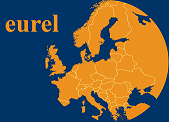Building on the ‘pathological normalcy' thesis (Mudde 2010), the paper elaborates on the interaction between the European Radical Right (RR) party family and religion. In particular, the research questions under scrutiny are:
On the one hand, the paper confirms the conventional wisdom, according to which religion is employed instrumentally by the parties as a ‘criterion of exclusion' (Minkenberg 2013) via its use as a component of national identity (Camus 2007), or as the pool for traditional value setting (Zaslove 2004). On the other hand, it suggests that a relatively large number of RR parties employs religion not only instrumentally, but also genuinely. Moreover, it finds that a number of the ‘old' party type (Ignazi 2003) have followed an anti-clerical discourse. The paper thesis is that the non-homogenous position within the party family with respect to the secularization agenda is not only founded on the structural framework of each country, but on ‘external supply side' factors as well.
The data for analysis derives from party manifestos and documents, the parties' parliamentary activity, as well as from interviews of their leadership. The method of elaborating the material is based on the theorisation of the so-called Essex School of discourse analysis (Laclau and Mouffe 1985).

 PDF version
PDF version
